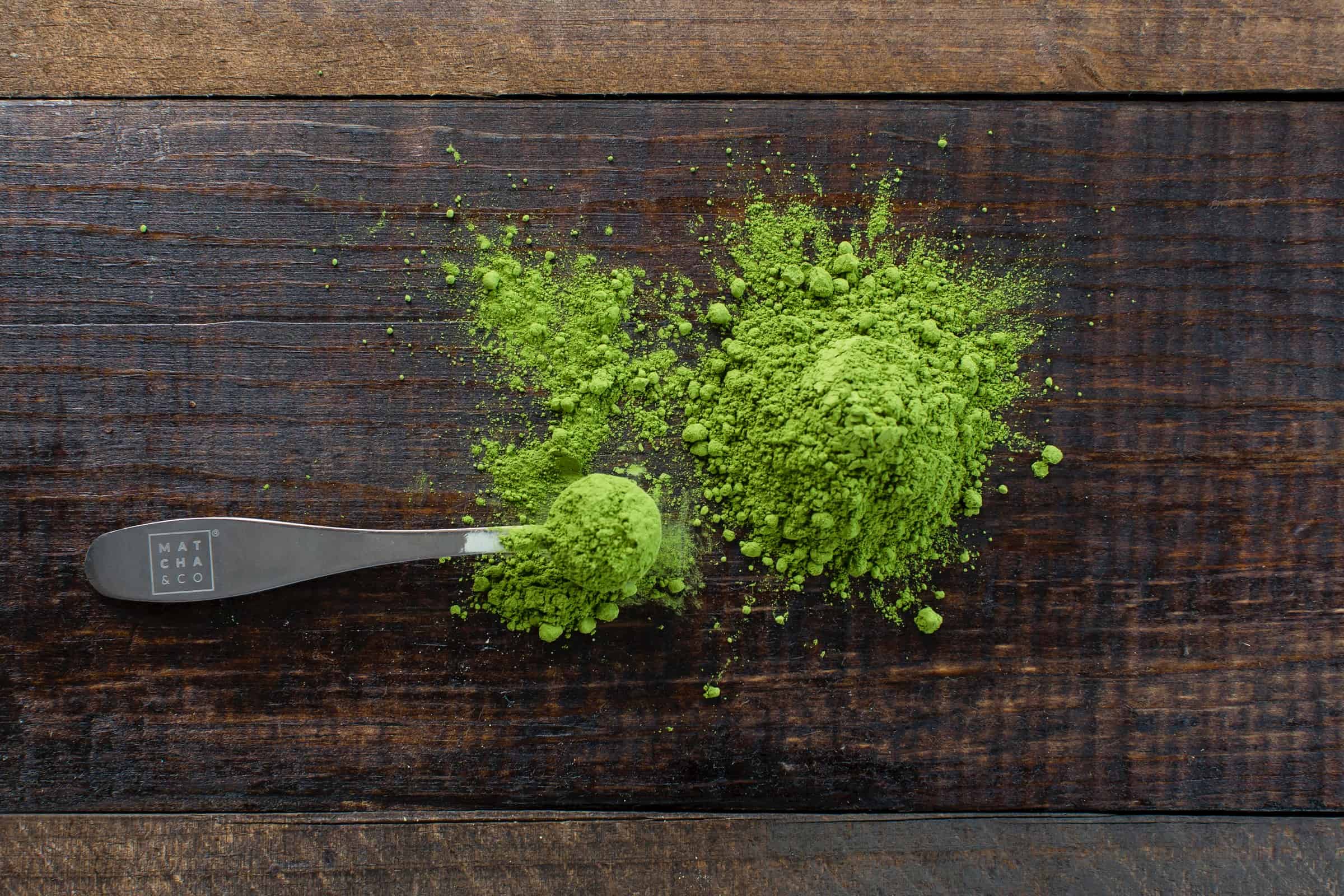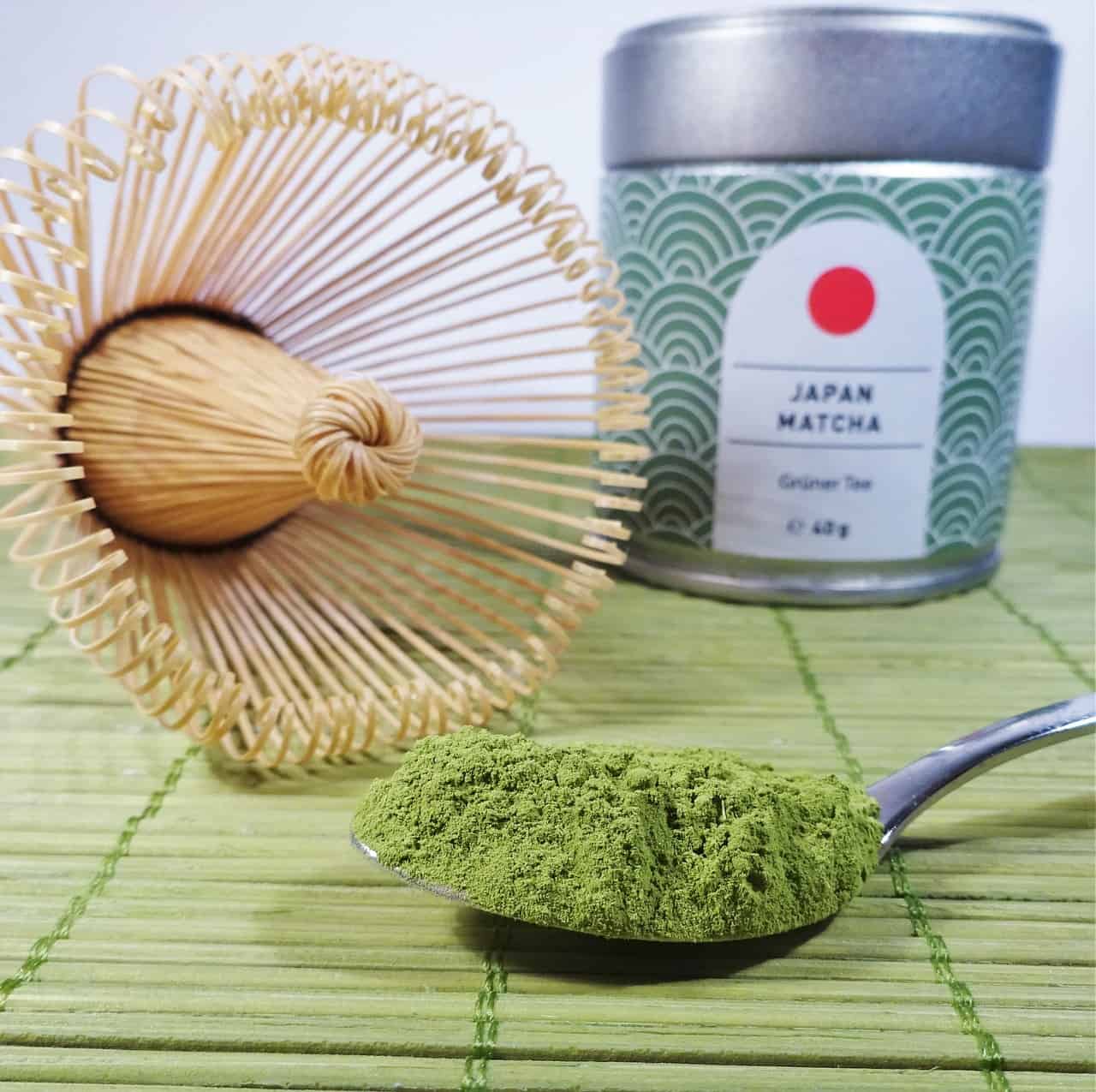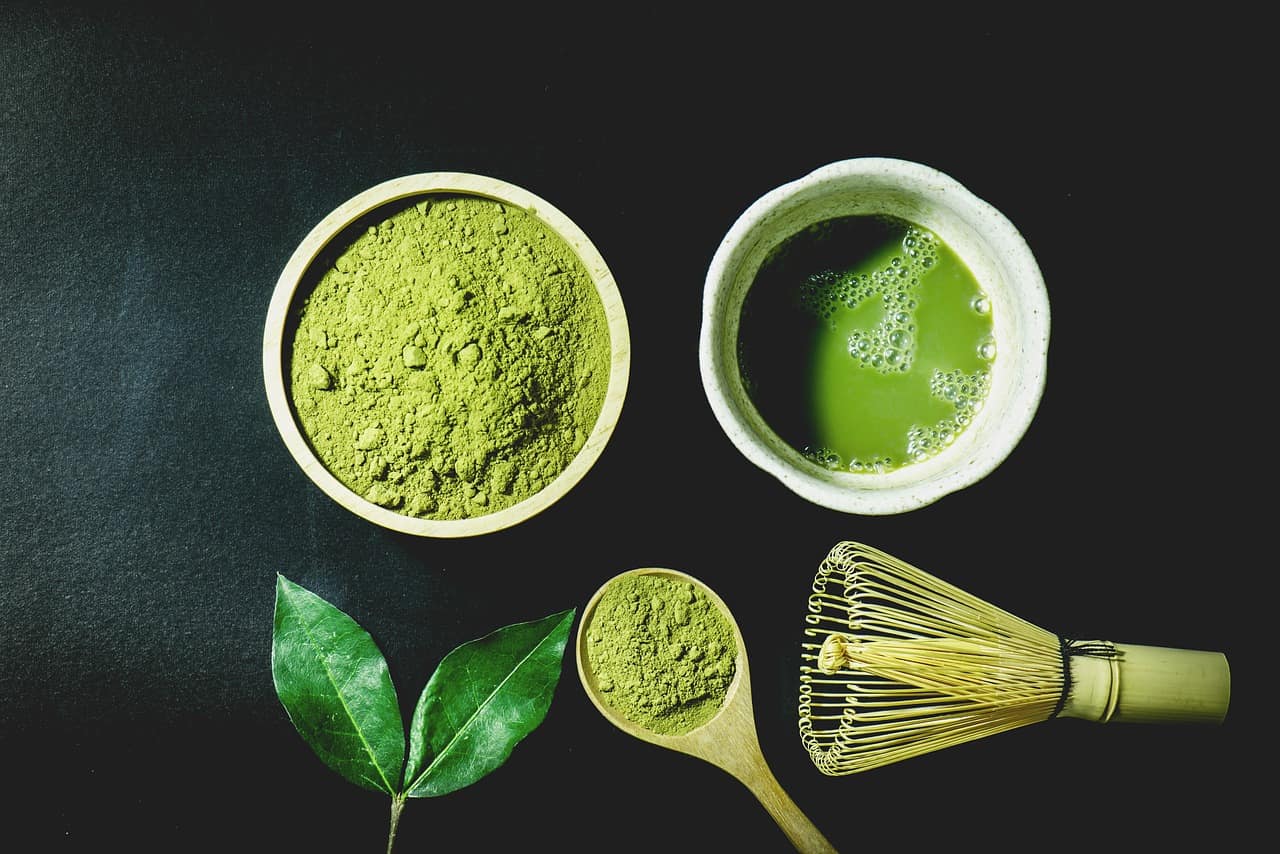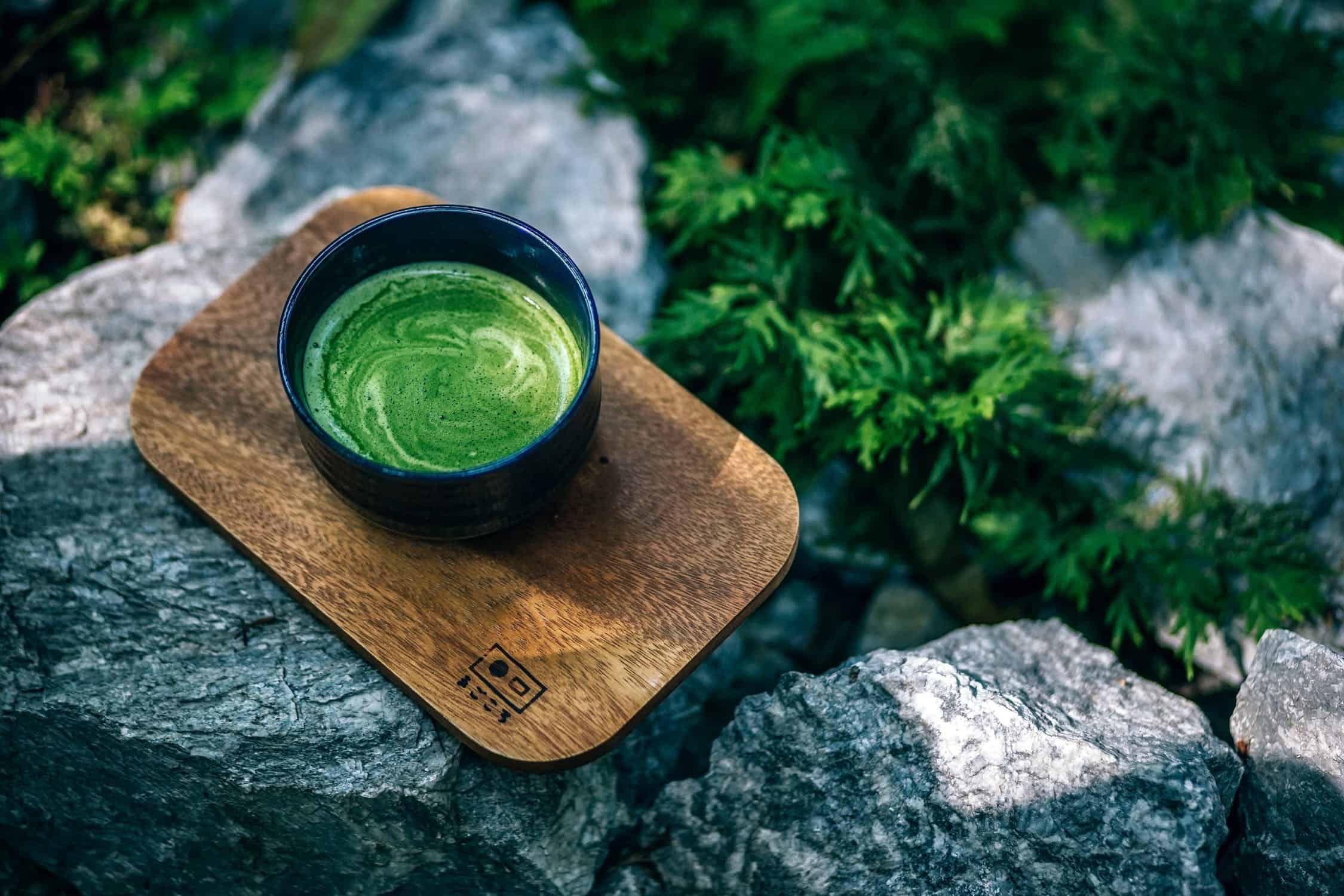Macha is part of the green tea family. Matcha includes all the leaf, that is powdered, mixed with a whisk, and drank from a bowl. It’s interesting to note the caffeine in matcha. Matcha is created from green tea. Green tea comes from the familiar Camellia Sinensis plant. How much caffeine is in matcha? Does the process of creating matcha change the caffeine content?
Green tea is one of the healthiest beverages on the planet. Green teas are loaded with antioxidants and nutrients. Green tea is also antibacterial, anti aging. Green tea is also credited with lowering the risk of cancer. It also improves brain function and blood sugar regulation. Matcha is a green tea, a powdered, and cultural version of green tea. Let’s take a look.

What is the cultural significance of matcha?
Matcha is a finely powdered and specially grown form of green tea leaves. The word Matcha actually means powdered tea. Drinking green tea is an infusion of the leaves, drinking matcha is drinking the entire leaf. The green tea for matcha has been processed in the shade for a few months before harvest. The stems and veins are also removed. These special procedures lead to increased levels of caffeine as well as theanine.
The Japanese Tea Ceremony, or Way of Tea, is a ceremonial activity in which matcha is prepared and served. The Japanese tea ceremony derives much of its cultural importance and preparation from Zen Buddhism. There are many different ways to teach the traditional tea ceremony and each has its own method.
There are a number of tools that are required to perform the ceremony. These include tea bowls, tea scoops, whisks, tea caddies, and more. A ceremonial vessel for carrying the water to make the tea is also an important part of the ceremony.
Matcha powder can be added to hot water to produce a sweet, fragrant tea. In addition to tea, matcha powder can be added to smoothies and other blended drinks as well.
An interesting note about matcha and green tea is that green tea and

How much caffeine does matcha have?
Caffeine in matcha is approximately 70mg of caffeine per 8 fluid ounce serving. This is typically 2 teaspoons of matcha powder dissolved in 8 fluid ounces of water. Increasing the ratio of powder to water would create an increase in caffeine. Like green tea because you are drinking the whole leaf. The caffeine count can be up to three times higher than in infused green tea. Because you’re consuming whole leaves in matcha, you may get three times as much caffeine than a cup of steeped tea
How does matcha compare to coffee (and other hot beverages)?
Instant Coffee – which coffee grounds are freeze-dried and prepared for later rehydration in hot water, contains about 60mg of caffeine per teaspoon.
Filtered Coffee – Coffee poured through a filter generally contains more caffeine and averages about 100mg of caffeine per serving.
Espresso – A small serving of espresso comes in around 80mg of caffeine.
Black tea leaves, which are used for brewing many kinds of tea around the world, averages about 60mg of caffeine per serving.
Coca Cola – A can of Coke has about 45mg of caffeine per serving.

Why Matcha
Matcha contains high levels of antioxidants. These have been proven to have a positive impact on cellular regeneration. They also reduce inflammation and protect blood vessels.
Studies have also shown that matcha can have a positive effect on weight loss. Matchas kick-starting a thermogenesis that increases the body’s natural ability to burn calories.
L-theanine, one of the amino acids in matcha, has been proven to help reduce stress and provide a calming influence.
As with any product containing caffeine, it is important to monitor your consumption. Caffeine overdose can cause symptoms such as headaches, nausea, irritability, and diarrhea. Be careful not to consume matcha too close to bedtime.
It is also important to note that since matcha comes from tea leaves, it may absorb some harmful chemicals from the soil, such as fluoride, arsenic, and lead. Lead is a primary concern and a cup of matcha may contain as much as 30 times more than a cup of green tea.
Be sure to consume only appropriately sourced and manufactured matcha. One place I can personally recommend for green tea is The Japanese Green Tea Company.
Matcha Benefits
- Is packed with antioxidants including the powerful EGCg
- Toxin fighting antioxidants, highest level of all teas
- Boosts metabolism
- By boosting the metabolism your body will begin to burn calories
- Detoxifies effectively and naturally
- Helps the body rid itself of toxins
- Calms the mind and relaxes the body
- Causes us to slow down and sip, relaxes the body and gives it time to breath
- Protects the Liver
- A study found a decrease risk of liver disease
- Is rich in fiber, chlorophyll, and vitamins
- Offering cell protection while fortifying the immune system
- Enhances mood and aids in concentration
- Reigns in focus and gives the mind the ability to recall and memory
- Provides vitamin C, selenium, chromium, zinc and magnesium
- All essential to fight off colds, infections, flu and balance the immune
- Prevents disease
- By giving us one powerhouse of an antioxidant-filled with vibrant cell protection
- Protects your heart
- Nutrients in Matcha help to prevent heart disease
- Lowers blood sugar
- Aids the body in balancing blood sugar
- Lowers Cholesterol
- Helps the body remove cholesterol

Conclusion
Matcha may contain a significant amount of caffeine compared to other teas.
Caffeine can be a problem when you drink it, some people get shakes and others get confused or both. Heart palpitations as well. Something magical happens to the caffeine consumed from tea. Your body has a better way of processing it. No jitters, confusion, or heart racing. The caffeine in matcha and tea do not spike your levels.
https://www.ncbi.nlm.nih.gov/pubmed/25761837
They gradually enter the bloodstream and gently leave. Leaving you with just the amazing benefits of a healthy beverage. Giving the ability to keep going a bit longer in a healthier manner.
Matcha is just another avenue to enjoy a refreshing and inspiring cup of tea. Sit back, relax and whisk up a bowl full today. Your body will thank you!

